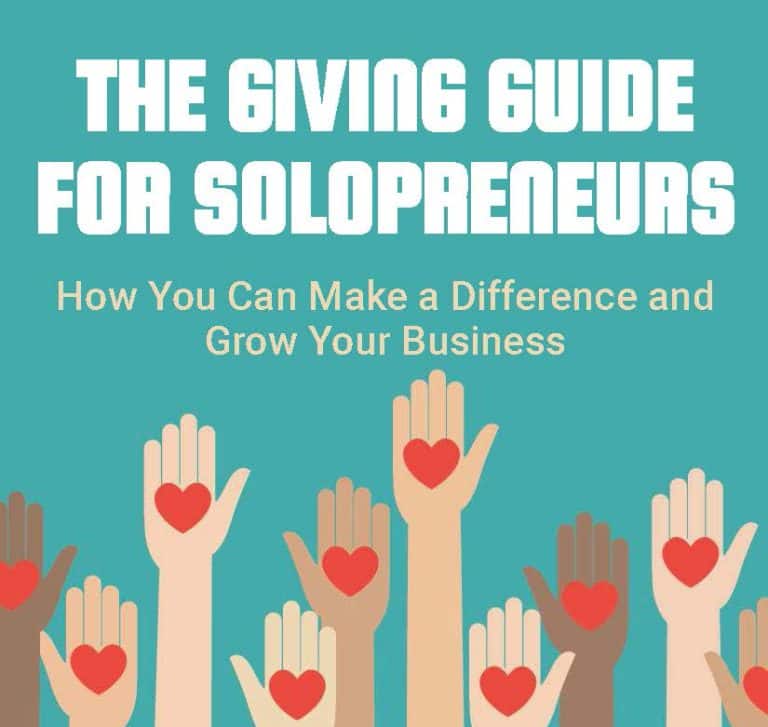[et_pb_section fb_built=”1″ _builder_version=”4.20.2″ _module_preset=”default” custom_margin=”0px||0px||false|false” custom_padding=”0px||0px||false|false” global_colors_info=”{}”][et_pb_row _builder_version=”4.20.2″ _module_preset=”default” custom_margin=”||0px||false|false” custom_padding=”||0px||false|false” global_colors_info=”{}”][et_pb_column type=”4_4″ _builder_version=”4.20.2″ _module_preset=”default” global_colors_info=”{}”][et_pb_text module_id=”pa-blog-load-more” _builder_version=”4.20.2″ _module_preset=”default” global_colors_info=”{}”]
People often use the term “greenwashing” to cover all misleading claims a company makes to about their commitment and/or actions related to social and environmental responsibility.
Because of my background in designing and measuring the impact of social impact programs that support community issues and nonprofit organizations, I believe it is important to distinguish the type of exaggerated claims a company makes so I also use the term “goodwashing.”
Both “goodwashing” and “greenwashing” are terms used to describe deceptive practices by companies or organizations that attempt to portray themselves as socially responsible or environmentally friendly, when, in reality, their actions may not align with their claims. The main difference lies in the focus of the deception.
[/et_pb_text][/et_pb_column][/et_pb_row][/et_pb_section][et_pb_section fb_built=”1″ _builder_version=”4.20.2″ _module_preset=”default” custom_margin=”0px||0px||false|false” custom_padding=”0px||0px||false|false” global_colors_info=”{}”][et_pb_row _builder_version=”4.20.2″ _module_preset=”default” global_colors_info=”{}”][et_pb_column type=”4_4″ _builder_version=”4.20.2″ _module_preset=”default” global_colors_info=”{}”][et_pb_divider _builder_version=”4.20.2″ _module_preset=”default” custom_margin=”0px||0px||false|false” custom_padding=”0px||0px||false|false” global_colors_info=”{}”][/et_pb_divider][/et_pb_column][/et_pb_row][et_pb_row _builder_version=”4.20.2″ _module_preset=”default” custom_margin=”0px||0px||false|false” custom_padding=”0px||0px||false|false” global_colors_info=”{}”][et_pb_column type=”4_4″ _builder_version=”4.20.2″ _module_preset=”default” global_colors_info=”{}”][et_pb_text _builder_version=”4.20.2″ _module_preset=”default” custom_margin=”0px||0px||false|false” custom_padding=”0px||0px||false|false” global_colors_info=”{}”]
Greenwashing
[/et_pb_text][/et_pb_column][/et_pb_row][/et_pb_section][et_pb_section fb_built=”1″ _builder_version=”4.20.2″ _module_preset=”default” custom_margin=”0px||0px||false|false” custom_padding=”0px||0px||false|false” global_colors_info=”{}”][et_pb_row column_structure=”1_3,2_3″ _builder_version=”4.20.2″ _module_preset=”default” global_colors_info=”{}”][et_pb_column type=”1_3″ _builder_version=”4.20.2″ _module_preset=”default” global_colors_info=”{}”][et_pb_image src=”https://bigpurposebigimpact.com/wp-content/uploads/2023/08/greenwashing.jpg” title_text=”greenwashing” _builder_version=”4.20.2″ _module_preset=”default” global_colors_info=”{}”][/et_pb_image][/et_pb_column][et_pb_column type=”2_3″ _builder_version=”4.20.2″ _module_preset=”default” global_colors_info=”{}”][et_pb_text _builder_version=”4.20.2″ _module_preset=”default” global_colors_info=”{}”]
Greenwashing refers specifically to the deceptive practice of exaggerating or misleadingly promoting the environmental friendliness or sustainability of a company, product, or service. Companies engaged in greenwashing may use misleading labels, deceptive marketing, or false claims to give the impression that their operations are environmentally responsible, while their actual practices might be harmful to the environment.
Greenwashing is:
-
Misleading Consumers: Greenwashing misleads consumers by making false or exaggerated environmental claims. This can lead customers to make purchasing decisions based on inaccurate information, undermining their ability to support genuinely sustainable products or services.
-
Undermining Trust: Greenwashing erodes trust between businesses and consumers. When companies are caught engaging in greenwashing, it damages their credibility and makes it harder for consumers to believe in their legitimate sustainability efforts.
-
Harm to the Environment: Greenwashing diverts attention and resources away from genuine sustainability initiatives. Companies that engage in greenwashing may avoid implementing meaningful environmental improvements, harming the planet and hindering progress toward real sustainability goals.
For example, a company might claim that its product is “eco-friendly” or “100% sustainable” without providing adequate evidence or transparent information to back up those claims. In reality, the product’s manufacturing processes, materials, or disposal might have significant negative environmental impacts.
Are your environmental claims and marketing messages supported by transparent and credible evidence?
[/et_pb_text][/et_pb_column][/et_pb_row][et_pb_row _builder_version=”4.20.2″ _module_preset=”default” global_colors_info=”{}”][et_pb_column type=”4_4″ _builder_version=”4.20.2″ _module_preset=”default” global_colors_info=”{}”][et_pb_divider _builder_version=”4.20.2″ _module_preset=”default” custom_margin=”0px||0px||false|false” custom_padding=”0px||0px||false|false” global_colors_info=”{}”][/et_pb_divider][/et_pb_column][/et_pb_row][et_pb_row _builder_version=”4.20.2″ _module_preset=”default” custom_margin=”0px||0px||false|false” custom_padding=”0px||0px||false|false” global_colors_info=”{}”][et_pb_column type=”4_4″ _builder_version=”4.20.2″ _module_preset=”default” global_colors_info=”{}”][et_pb_text _builder_version=”4.20.2″ _module_preset=”default” global_colors_info=”{}”]
Goodwashing
[/et_pb_text][/et_pb_column][/et_pb_row][et_pb_row column_structure=”3_5,2_5″ _builder_version=”4.20.2″ _module_preset=”default” custom_margin=”0px||0px||false|false” custom_padding=”0px||0px||false|false” global_colors_info=”{}”][et_pb_column type=”3_5″ _builder_version=”4.20.2″ _module_preset=”default” global_colors_info=”{}”][et_pb_text _builder_version=”4.20.2″ _module_preset=”default” global_colors_info=”{}”]
Goodwashing is a broader term that encompasses deceptive practices related to social responsibility or positive societal impact. It refers to instances where companies attempt to create a positive image by overstating their social contributions or charitable activities without genuinely engaging in meaningful efforts to address social issues. If the philanthropic efforts are merely token gestures without meaningful integration into the organization’s operations, it could be a sign of inauthentic social responsibility efforts.
Goodwashing is:
-
Deceptive Marketing: Goodwashing misleads consumers into believing that a company is socially responsible, when, in reality, their actions may not align with their claims. This deceptive marketing can create a false positive image, making consumers think they are supporting a socially conscious business when they are not.
-
Undermining Social Causes: Goodwashing diverts attention and resources from genuinely impactful social causes. When companies engage in goodwashing by exaggerating their social contributions, it can lead to less support for legitimate charitable organizations and initiatives that are actively addressing pressing social issues.
-
Damage to Reputation: Engaging in goodwashing can severely damage a company’s reputation and brand image once consumers discover the deception. It erodes trust and credibility, making it challenging for the company to regain the trust of consumers and stakeholders. This can have long-term negative effects on the company’s success and sustainability.
For instance, a company might extensively promote its charitable donations and philanthropic initiatives, but behind the scenes, it may be engaged in unethical labor practices or exploitative supply chain activities.
Are your social impact claims and philanthropic efforts aligned with your core business practices and values?
[/et_pb_text][/et_pb_column][et_pb_column type=”2_5″ _builder_version=”4.20.2″ _module_preset=”default” global_colors_info=”{}”][et_pb_image src=”https://bigpurposebigimpact.com/wp-content/uploads/2023/08/dreamstime_xl_16949210.jpg” title_text=”dreamstime_xl_16949210″ _builder_version=”4.20.2″ _module_preset=”default” global_colors_info=”{}”][/et_pb_image][/et_pb_column][/et_pb_row][/et_pb_section][et_pb_section fb_built=”1″ _builder_version=”4.20.2″ _module_preset=”default” global_colors_info=”{}”][et_pb_row _builder_version=”4.20.2″ _module_preset=”default” custom_margin=”0px||||false|false” custom_padding=”0px||||false|false” global_colors_info=”{}”][et_pb_column type=”4_4″ _builder_version=”4.20.2″ _module_preset=”default” global_colors_info=”{}”][et_pb_divider _builder_version=”4.20.2″ _module_preset=”default” custom_margin=”0px||0px||false|false” custom_padding=”0px||0px||false|false” global_colors_info=”{}”][/et_pb_divider][et_pb_text _builder_version=”4.20.2″ _module_preset=”default” custom_margin=”0px||||false|false” custom_padding=”0px||||false|false” global_colors_info=”{}”]
Basically, greenwashing focuses on misleading environmental claims, while goodwashing extends to misleading claims about social responsibility and positive impact. Both practices can erode consumer trust and undermine genuine efforts made by organizations that are committed to sustainability and social responsibility.
[/et_pb_text][/et_pb_column][/et_pb_row][/et_pb_section]





